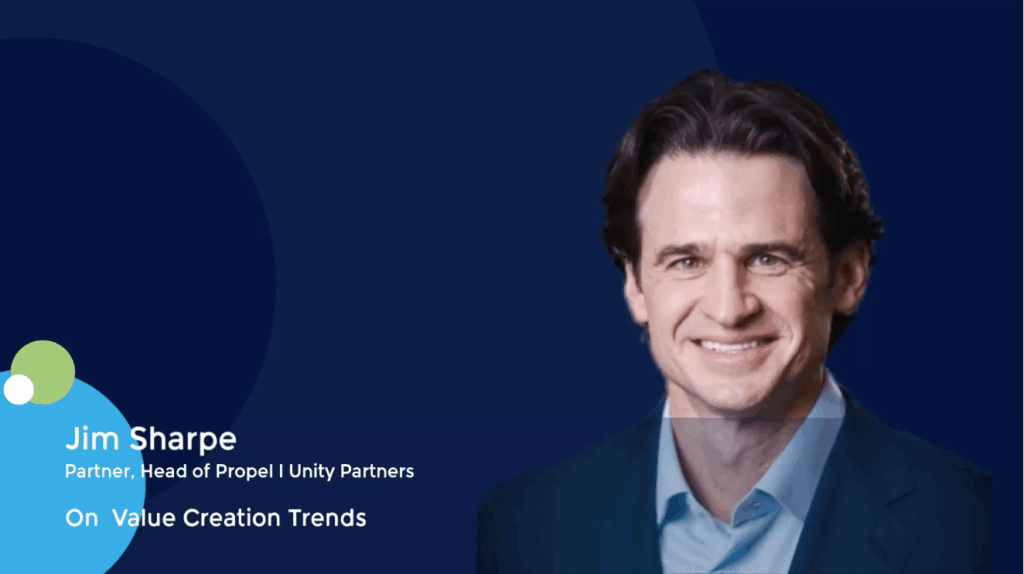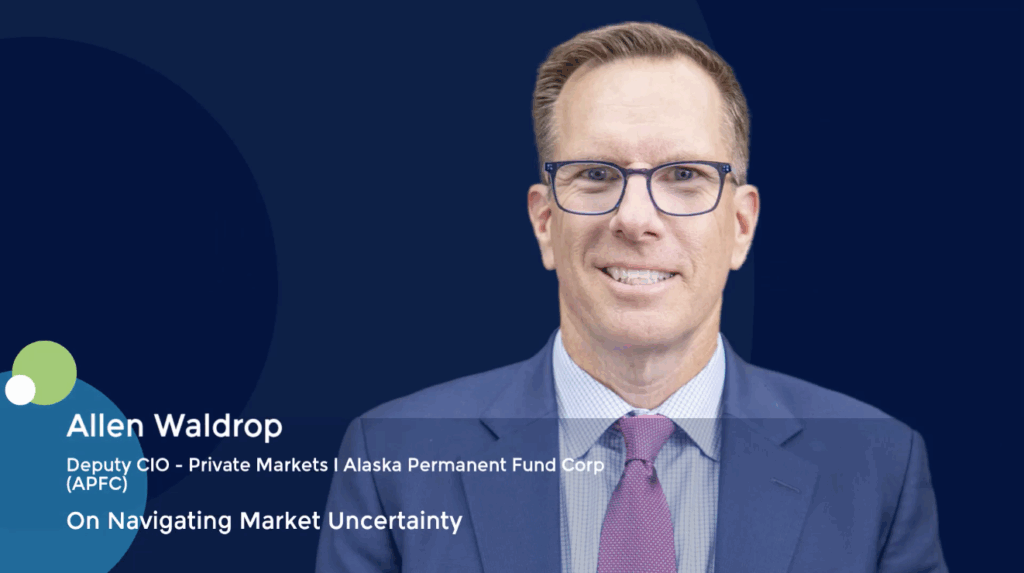Australia PE: Sector specialization proliferates despite shallow deal market
Sydney-based Adamantem Capital has substantiated a trend toward sector specialization in Australian private equity in recent years by reaching a final close on its Environmental Opportunities Fund (EOF) at slightly over the target of AUD 350m (USD 220m). But it does so with an asterisk.
The fund, which focuses on enabling net zero transition for Australian companies, is the first of its kind and hence an at least somewhat unproven thesis. Nevertheless, it attracted support from a range of international investors such as Dutch pension fund APG Asset Management, AlpInvest Partners, and Canada’s Manulife.
It’s worth noting that this took time. EOF was launched in September 2022 and hit a first close of AUD 150m – featuring Australian institutions including Clean Energy Finance Corporation (CEFC), Minderoo Foundation, and NGS Super – in June 2023.
Most importantly, the investors were likely attracted to EOF as much for its generalist virtues as its specialization.
EOF is purposefully flexible in terms of sector, with sub-strategies covering clean energy and electrification, natural capital and abatement themes around carbon credits and decarbonization, as well as circular economy models in areas like recycling.
The fund is currently about 30% deployed in companies spanning areas as diverse as electric vehicle charging (Evnex), low-voltage monitoring technology (Edge Zero), commercial solar (Microgrid), and sustainable packaging (Pac Trading).
“There are a variety of themes it can invest in, and we think that’s important for a small fund in a sector of the economy that’s still developing rapidly, where there’s still quite a lot of regulatory change, and where from year to year, there might be some better opportunities in one area versus another,” said Anthony Kerwick, a co-founder and managing director at Adamantem.
“It’s quite a bit broader than just a decarbonization fund, where we wouldn’t have been able to have done the investments we’ve done.”
It speaks to the central tension in the emergence of sector specialization in Australia, which pits the need for differentiation and expertise in a growing, increasingly competitive market against the natural limitations of a relatively small population and business landscape.
Natural evolution
There is a seeming element of inevitability in the trend. As the private equity industry matures in any market, more deals are done, and business owners have more to talk about in terms of positive and negative experiences with investors, driving demand for expertise and specialization in GPs.
As the best performing sectors come into focus and competition mounts for the best deals, demand for specialized GPs will likewise increase on the LP side. This demand is most prudently satisfied where there is an oversupply of investment opportunities and an undersupply of capital – an unlikely imbalance in Australia.
“It’s a natural evolution of the market, but it’s probably easier to do that when you’ve got a regional mandate rather than a single-country mandate in a country the size of Australia. With the volume of deals in Australia, it’s quite hard to be too specialized because you almost have to do every deal that pops up in that space,” James Hindle, head of private equity at KPMG Australia.
“It’s definitely a market trend, but it’s just a challenge with the volume of deals in Australia to make that work at scale.”
The prospects for an increase in investment opportunities is mixed. One perceived headwind is the idea that many companies in new-economy sectors where expertise and specialization is often considered essential are prone to re-headquarter or go public overseas.
It is also uncertain if skilled immigration will move the needle. Australia typically charts the fastest net migration among developed economies, having added 10% to its population in the past decade. But Deloitte observed last August that private sector and white-collar hiring has stalled, with the latter set to decline 0.4% in the 2025 financial year.
“It’s hard to see much more specialization coming to Australia. Are there enough people coming out with business and engineering backgrounds solving problems and creating companies?” said one global LP, adding that it’s easier to access sectors of interest in the country via co-investment than funds.
“That’s the question – how much will Australia bring in and nurture the talent that can build global businesses?”
No way pureplay?
The history of Australian sector specialization is arguably best encapsulated by Advent Partners, which after a generational succession in the early 2010s increasingly shifted towards technology and healthcare. The two sectors now represent about three-quarters of assets under management.
For Advent, the transition was mostly as simple as following the returns and doubling down on the best-performing sectors. This experience was clearly shared industrywide in the tech space, less so in healthcare.
Of the USD 155.7bn deployed in Australia by private equity investors, excluding early-stage transactions, during the five years through 2024, 19.3% went to tech, versus 4.5% in the prior five-year period. Healthcare, however, declined from 11.5% in 2015-2019 to 6.5% in 2020-2024.
“Our view is that the markets aren’t really big enough in Australia for pureplay specialists,” said Robert Radcliffe-Smith, a managing partner at Advent, noting the advantage of being able to pivot between sectors depending on their relative attractiveness at any given time.
“At the same time, we mostly work with founders who want to know that we know their sectors. That’s really important. If they’re going to give us a controlling stake, they want to know that we know what we’re doing and are going to make money.”
Genesis Capital reinforced the case for healthcare specialization in Australia last month, closing its second sector fund on AUD 350m after six weeks in the market, with 75% of the capital coming from international LPs. This compares to AUD 190m for its debut fund in 2021, which was less than 25% international.
As with Adamantem’s EOF, Genesis’ remit, which includes New Zealand, can be a deceptively broad umbrella, taking in areas such as bioanalytical services (Crux Biolabs), first aid training (Life Care Consultants), dental clinics (Impression Dental Group), and disability services (Therapy Pro). One investor called it, “more human betterment than health.”
Michael Caristo, a partner at Genesis, attributes his firm’s fundraising success in part to the notion that some aspects of healthcare demand a specialist touch. Generalist GPs, for example, are seen as susceptible to mismanaging the nuanced relationships and priorities of a doctor-led business or failing to appreciate the complexity of pharma and clinical trials.
Still, he acknowledges that the local market has limited depth for deep-diving investors. “The two industries that lend themselves to specialization the most have been tech and healthcare, and arguably, there isn’t space in Australia for two managers in each of those camps,” Caristo said.
It is tempting to point to the bidding war for dental group Pacific Smiles [ASX:PSQ] as a signal that the local healthcare pond is already turning into a red ocean. But there were likely personal dynamics at play: Caristo and Chris Yoo, a partner at Genesis, were previously part of rival bidder Crescent Capital. Genesis prevailed last November with a bid that values the company at AUD 320m.
“I don’t think it’s a tiny market for a specialist to focus on,” said Cameron Brownjohn, CEO of Federation Asset Management, which concentrates on sectors driven by Australia’s ageing population, including healthcare, and sustainability-related sectors, including infrastructure.
“There’s the healthcare facilities management opportunity set, the healthcare services opportunity set, and the healthcare products opportunity set. Facilities management would be billions of dollars in Australia alone. Services would be many times that.”
Potentia’s breakthrough
The standout player in tech is Potentia Capital, which closed its debut software fund on AUD 382m in 2021. Fund II closed on AUD 635m in 2022 with support from HarbourVest Partners, New York State Teachers’ Retirement System, Neuberger Berman, and Asia Alternatives.
The GP, which focuses on mid-market buyouts of B2B software-as-a-service (SaaS) providers with scope for global expansion, is commonly regarded as having the tightest pureplay thesis in Australia. Yet it appears increasingly compelled to explore opportunities outside the country.
Due to the digital nature of the underlying businesses, most of the portfolio is active overseas, primarily in the US, UK, and Europe. New Zealand has always been on the menu, and at one point, a Singapore office was explored but abandoned.
Meanwhile, there have been two acquisitions in Japan. Potentia purchased Tokyo-based payroll software company Workcloud as a bolt-on for its Ascender platform in 2017. Last September, it teamed up with Japan’s J-Star to jointly acquire HR SaaS provider Jinjer.
“Many players are certainly investing now, driving up valuations,” Michael McNamara, a partner at Potentia, told AVCJ following the Jinjer acquisition in reference to the Japan market. “There is upward pressure, but we are still seeing good opportunities.”
Hemal Mirani, a managing director at HarbourVest who has been investing in Australian PE funds since the late 1990s, observed that the market has deepened and matured significantly in the past 30 years, singling out the local technology and software opportunity as an exciting development.
“We will see further specialization in some sectors, but the market has room for generalists and specialists to both provide value,” she said.
“As an example, software and technology businesses from Australia need to go global very quickly to achieve scale – mid-market firms may be very good at identifying local entrepreneurs at an early stage, and sector specialists will help the company scale faster at a later stage in its development, giving investors a choice on how to build their portfolio.”
HarbourVest has emerged as an incidental champion of Australia’s specialization trend, having backed Potentia largely on the back of an existing relationship with the GP’s founder, Andrew Gray, who previously invested in midcap technology companies in Australia for Archer Capital and Francisco Partners.
The fund-of-funds is also notable for providing a crucial LP commitment to Glow Capital Partners, which focuses on industrial and consumer brands, as well as B2B businesses in consumer supply chains.
Broader mandates
Justin Ryan, a former investor at Quadrant Private Equity, set up Glow in 2021 alongside Kate Morris, founder of Adore Beauty [ASX:ABY], a beauty e-commerce platform backed by Quadrant, with an initial thesis focused squarely on consumer-facing business models.
HarbourVest was impressed with Ryan’s track record during the direct-to-consumer boomtime of the pandemic but insisted his new venture widen its mandate in a floundering consumer landscape. Glow’s debut fund closed on AUD 90m last October, well short of the AUD 300m target, but Ryan plans to make up the difference with co-investment.
“LPs would say to me, ‘What’s different about you? If there’s nothing different, we can get that elsewhere.’ You can see why they would have no interest in having a bunch of groups that are identical because all they’re going to do is compete against each other and push down returns,” he said.
“If you’re going to start a business, you need an element of differentiation. Ours is a tweak around the consumer mindset. That really translates into brand, which we see as a universal notion. We’ve always found there is a buyer set for founder-led businesses and businesses with great brands.”
Specialist activity in Australia has otherwise proven sparse and appears likely to remain so. Longstanding pillars of the economy, including natural resources and financial services, have not featured prominently in GPs’ mission statements, partially due to competition from oligarchies of large strategic incumbents.
Exceptions include Roc Partners, which has carved out a niche in agriculture, and Ibaera Capital, which represents a class of mining-focused GPs mostly active outside their home countries. Some newer operators such as Fortitude Investment Partners, a deal-by-deal player set up in 2019, have begun building depth in less penetrated areas.
Fortitude’s core verticals are tech, healthcare, food, and energy transition infrastructure services. In food, it likes lower mid-market manufacturing and distribution companies, especially where there is potential to leverage Australia’s reputation for quality food exports.
Energy transition is the newest focus, although it has been bubbling as an area of interest for years. The first investment came in 2023 with electricity equipment supplier The Energy Network. Only established companies are of interest.
Fortitude has separate teams covering its four sectors. Tech and healthcare see the most volume in terms of potential investments going under review. Energy transition and food are only slightly behind. The balance is vital.
“If I was a specialist solely on energy transition at the moment, I would have a lot of weight of capital to deploy quickly in the space. That could be a good thing, but certainly what we’re seeing is a little bit more slow-burn than that,” said Nick Miller, a partner at Fortitude.
“I’m confident we’ll deploy a lot of capital in this area in the next 10-20 years, but we don’t have to pull the trigger quickly. We can monitor, understand, get to the know the right people and the dynamics, rather than having to invest too early or jump on a thematic that might not play out.”
Know your market
The use of separate market mapping teams for each of its focus sectors speaks volumes for how private equity firms, large and small, see specialization as essentially an exercise in the development of talent, expertise, and networks. In the face of any argument about the shallowness of Australian deal markets in any particular sector, this aspect of the industry will continue to mature.
Here again, Adamantem’s EOF is emblematic of the industry’s evolution and philosophy on the subject.
The firm has implemented a deliberate sustainability lens to its buyout strategy since at least its second flagship fund – which attracted CEFC as an LP in 2020 – including an overarching goal of achieving carbon neutrality in its consumer, healthcare, and B2B services companies while also generating traditional private equity-style returns.
This effort gradually exposed Adamantem to the broader net zero-related business ecosystem and familiarized the firm with the most essential products and services in the theme. The expertise was accumulating organically, but it needed a silo to be systematically developed and monetized.
“Although some of the opportunities could potentially be actioned by a buyout fund, most of them we’ll do a better job of if we build expertise in these areas,” said Kerwick, referring to the creation of EOF.
“So, it’s not staffed by the same professionals that work in the buyout team, and those people are building careers with specialization. Too much or too little specialization can both be dangerous, but most people would agree that developing expertise and centring it around certain activities is a positive.”












